Yesterday, Apple announced their new product in their attempt to wrestle their way into control of your living room. It’s the cheekily-named Homepod, and it’s coming into a fast-growing market that already has some stiff competition at the helm.
We’re talking about Amazon’s Echo and Google Home, both of which are backed by companies with just as much muscle as the guys in Cupertino have. The question is: which of these are better?
Well, that’s a bit of a hard question to answer right now, because the truth is they look to serve and please different crowds of folks despite attacking the same market. Let’s dive deeper.
Apple Homepod: Best Audio Quality
We’ll start off talking about the newbie here, and we can tell you right away that Apple’s big bet for supremacy is in the music department. It’s a speaker, after all, so it should be able to deliver the tunes when you’re feeling the need for some.
On the hardware side, this is immediately apparent when you consider it has 8 different speakers inside, 7 of which are an array tweeters for accurate audio at the higher end of the audio spectrum. Apple says they use “beamforming” technology to make sure music and audio sounds great no matter where it’s positioned in the room. They’re joined by a lone woofer to deliver that bass we all love.
The device also features 4 dedicated microphones, and they’re not all just for the voice commands you can issue. The microphones are used in concert with the A8 chip to actively judge where the speaker is in your room and adjust its audio accordingly. That means it can know when it’s sitting up against a wall, and automatically adjusts sound to the other side in order to best fill the rest of the room.
From there, the heavy lifting is turned over to the software. Homepod is infused with Siri who can help you find the exact tunes you want through Apple Music. There are 40 million tracks in that ecosystem, and you can use natural commands like ” I want to hear hip hop” or even more exact requests like “Taylor Swift — Shake It Off” to get the music flowing. You can also tell Siri whether you like the track or not and it’ll learn your music tastes over time to suggest better music for you.
Siri comes with other capabilities, too, such as controlling your HomeKit-supported smart home products, delivering news, the score to last night’s game, or setting up a reminder.
Amazon Echo: Most Features
The Homepod may have everyone beat on the pure music experience, but Amazon’s early start in this space gives them one big advantage: they have a crap ton of things you can use it for. Amazon’s Alexa platform now has over 10,000 “skills” it can use, ranging from music playback through popular apps to smart home control. It’s even bound to become a great communication platform with a display-equipped model on the way.
That’s not to say the Homepod and Google Home couldn’t catch up and don’t already come with a decent toolkit out of the box, but Amazon is so far ahead that you really have to make this a primary point of consideration if you’re looking to buy either of these.
It doesn’t hurt that the Echo is pretty OK at being a music device, though it can’t quite live up to the Homepod’s audio prowess. It only has 2 speakers, and it can’t be used in conjunction with another Echo units to extend the audio.
If you want a swiss army of sorts to be the hub of your smart home, the Echo fills that role quite dominantly right now.
Google Home: Smartest Assistant
Apple has the music and tunes and Amazon has the skills. What does Google have? Well, we’re going to say the best of both worlds for now. The Google Home music experience isn’t bad at all, though its 3 speakers would require bigger rooms to use more than one of these to get a fully rich audio track in every corner.
If you can live with that or if your needs aren’t quite that lofty, then you at least get a nice recommendation engine driven by voice. Much like Apple’s counterpart, you can call on Google Music to not only play specific songs or songs from a particular genre, but even use commands to play songs based on your mood or activity.
Google Home also gets the benefit of having perhaps the most conversational tone of the three. Google’s extensive work in machine learning has allowed them to build the Google Assistant as the golden standard for AI helpers. Where the others require more exact commands, a Google Assistant conversation can flow and branch in ways that make you feel like you’re talking to a human.
Google Assistant also hits the ground running with a vast database of knowledge, because it draws most of its results from Google’s ever-expanding library of info found within their Knowledge Graph. Where Alexa or Homepod may trip up on random trivial questions like “how tall is Donald Trump,” Assistant can answer without an issue. The ability to naturally follow-up with a human-like question such as “what’s his net worth” and get the answer without having to say Trump’s name again is just the most blissful thing ever.
Unfortunately, Google Home’s biggest drawback in the early going is that — like Homepod — it can’t quite hold a candle to Alexa’s sheer list of third-party capabilities. That’s changing, what with Google introducing new tools to let developers target Google Home and the Google Assistant platform every day, but for now you have to consider that it does have its limits.
Oh, and there’s one neat thing Google Home has going for it the others don’t: swappable style covers for looks. It matters.
Who Ultimately Wins?
As we’ve alluded to, there’s a lot of work to be done for all 3 of the major players in this race, with Google and Apple needing to catch up with Amazon’s third-party support to have any chance of winning.
If we consider the price tags of all 3, we’ll say $179 (and sometimes even cheaper on discount) for the Amazon Echo is the most reasonable asking price for the depth it offers. The $129 (or cheaper) Google Home is a better option if you really want to save some dollars or are deeply invested in the Google ecosystem. (It also looks like something that belongs in your home and not some geeky tech toy sticking out like a sore thumb.)
And then there’s the $350 asking price for the Homepod. We’re not going out on much of a limb to say that price is being buffed by its superior audio capabilities, as well as a bit of added “Apple tax” on top. It’s likely the Homepod will also work best with Apple products, so unless your home is fully decked out in bitten fruit tech, we’re going to say that money is better spent on a Sonos speaker combined with an Echo Dot if you’re worried about the music capabilities more than anything else.
Who do you think is offering the best smart home speaker right now?
[polldaddy poll=9763170]

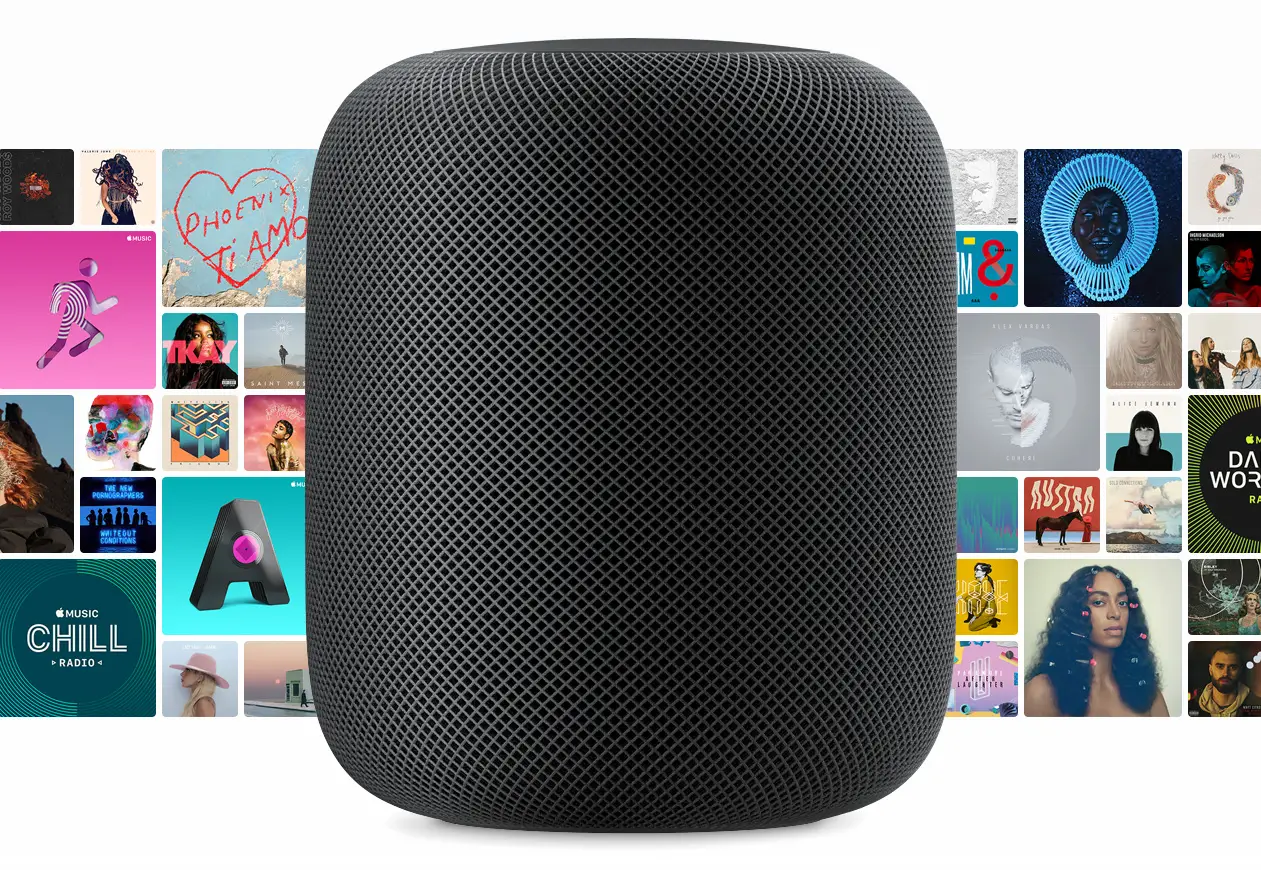
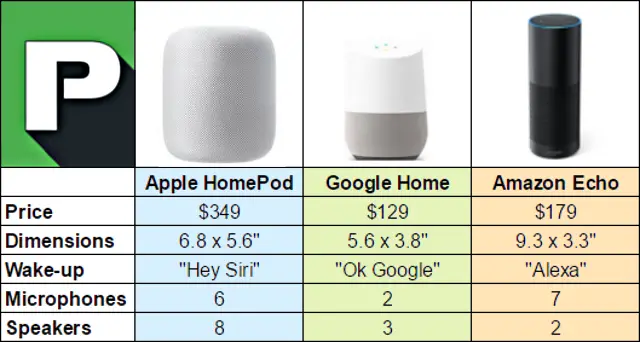
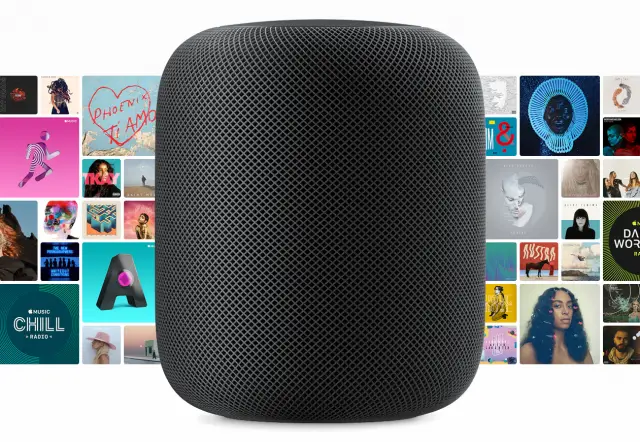
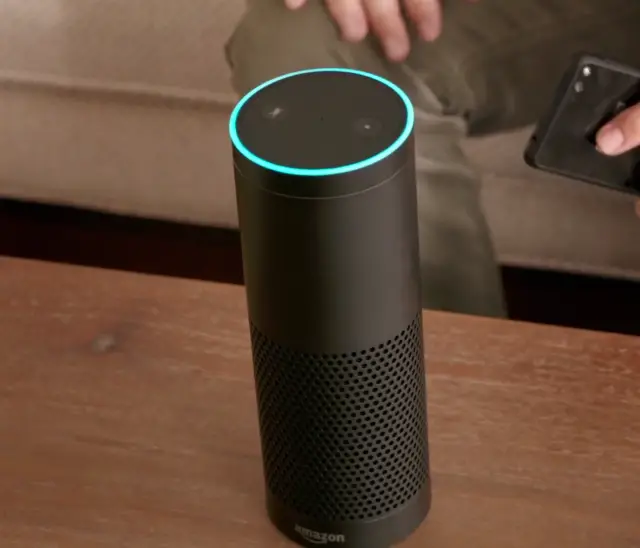
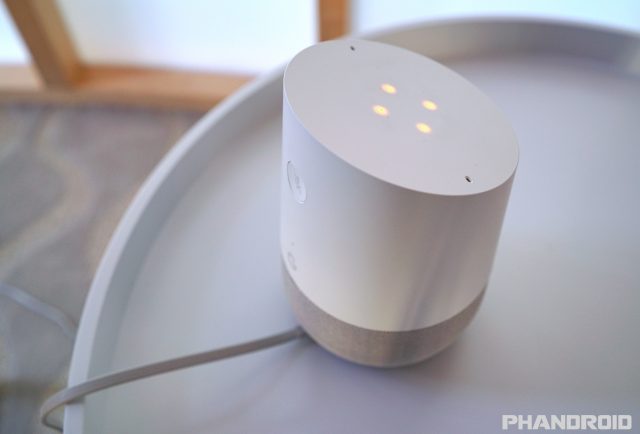
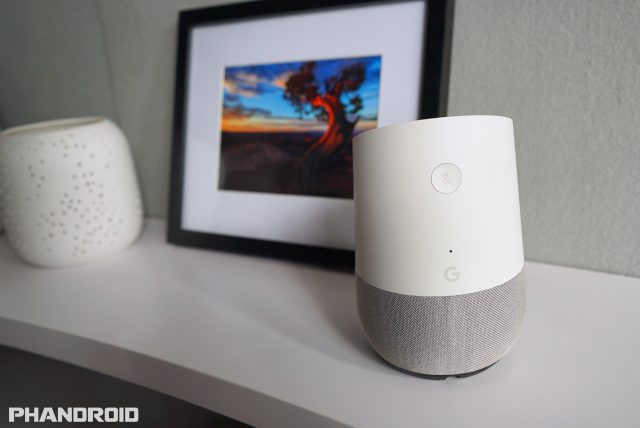





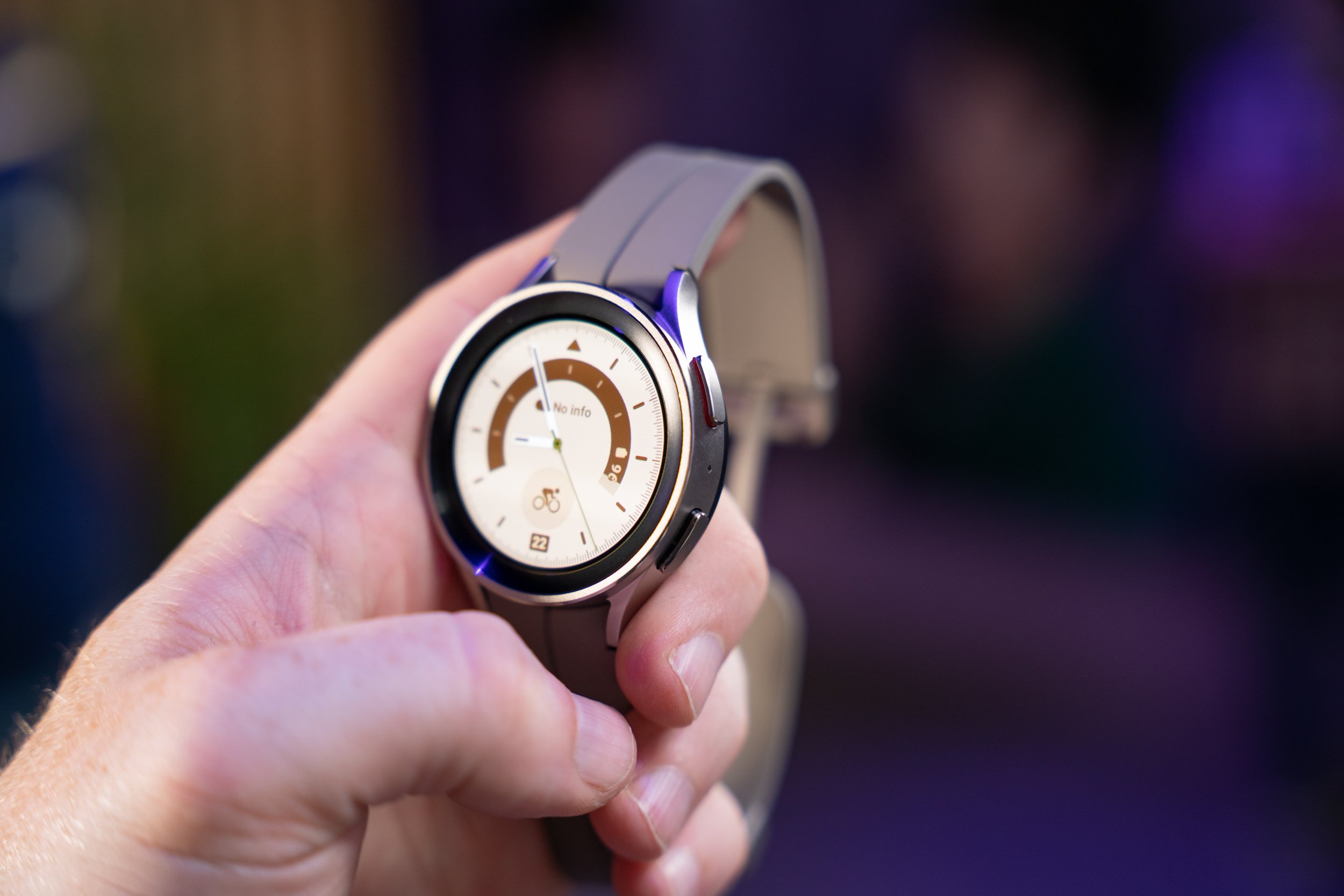




Comments